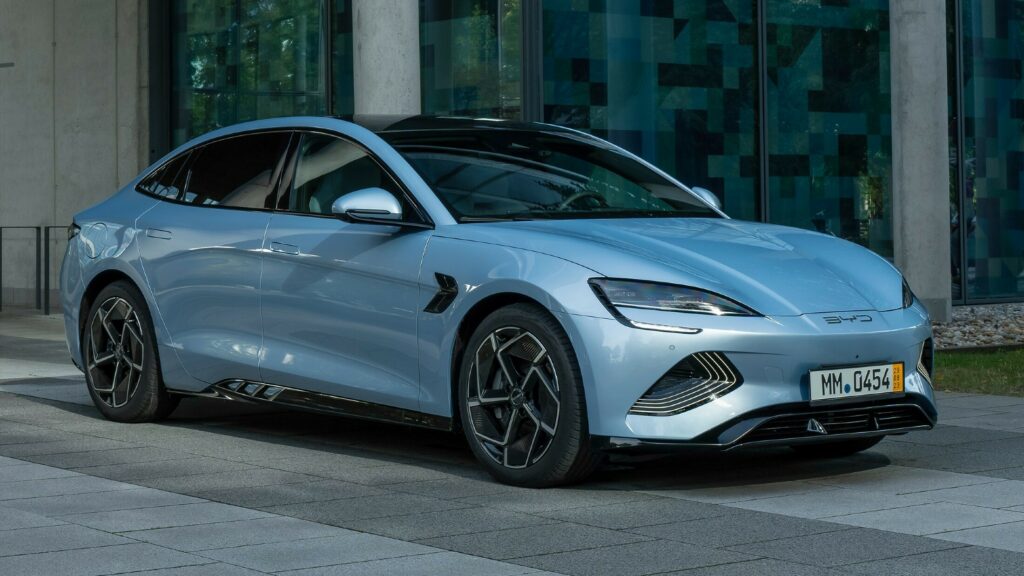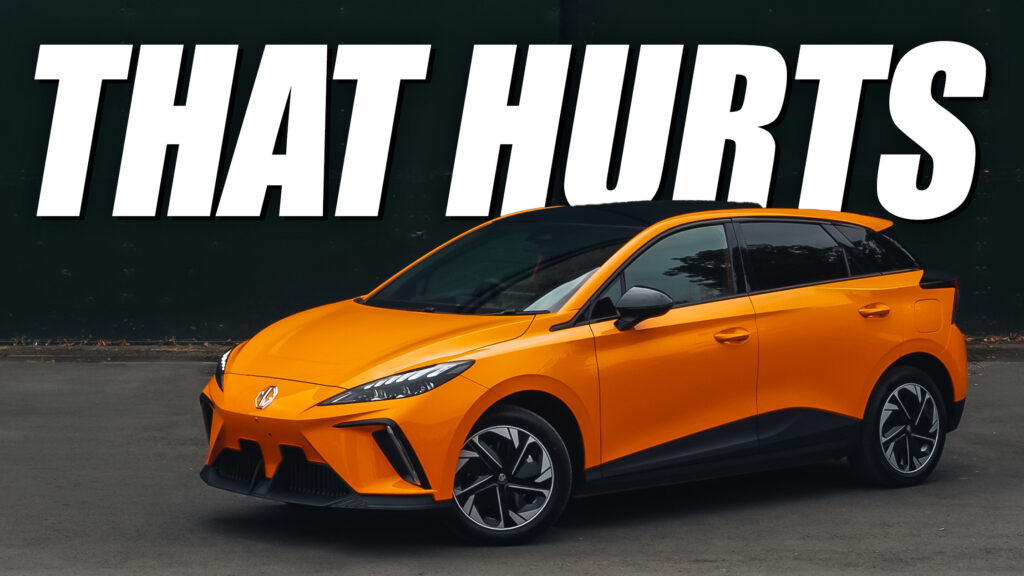- Chinese EVs arriving in Europe face up to 38.1 percent additional tariffs on top of existing 10 percent starting next month.
- BYD escapes with 17.4 percent levy and Tesla gets an “individually calculated duty rate.”
- Move comes just weeks after Biden administration quadrupled American duties on Chinese EVs to 100 percent.
Chinese EVs imported to Europe face tariffs as high as 38.1 percent starting next month, the European Commission has announced. But not every automaker will be treated as harshly, some escaping with a relatively light 17 percent duty. The new tariffs would be in addition to the 10 percent already applied to imported EVs.
Analysts had variously predicted tariffs of between 10 and 25 percent but SAIC, the owners of MG, bears the brunt of the pain, getting hit with the maximum 38.1 percent levy, while Geely cars face a much smaller 20 percent tariff, and BYD vehicles, 17.4 percent. The EC didn’t outline a rate for Tesla, only saying that the automaker “may receive an individually calculated duty rate at the definitive stage.”
Related: China May Hit Imported Western Cars With Added Duties
Automakers not investigated by the commission face a 21 percent tariff – but have the option to submit their businesses for scrutiny in the hope of securing a better deal – and those that refused to cooperate with the inquiry looking into how much financial assistance Chinese brands received from the country’s government suffer the top whack duty. The tariffs will be applied from July 4, concluding the work of the European Commission, which began investigating last year.
The EC’s official announcement contradicts an earlier report published by the Financial Times today, which suggested tariffs would come it at 25 percent. We’re not yet sure how the new measures affect Western brands like Dacia who build cars in China and export them to Europe, but will expand the story when we have a clearer picture.
The tariffs the EU is applying won’t necessarily result in the retail prices of Chinese EVs going up by the same amount. Automakers will do their best to absorb the financial pain and some experts predicted that tariffs would have to be as high as 50 percent to have an impact, so high are the Chinese brands’ profit margins.

Though Western brands are concerned about the threat of aggressively-price Chinese cars arriving in Europe, many are not in favor of the EU applying tariffs because they fear China will respond in kind, hurting their export sales. China has previously said it would be prepared to apply 25 percent levies on imported cars with big engines.
News of the European tariffs comes just weeks after America announced even harsher duties on Chinese cars arriving on its shores. The Biden administration quadrupled tariffs on EVs to 100 percent, while also announcing new levies on EV batteries and many other non-automotive goods.




